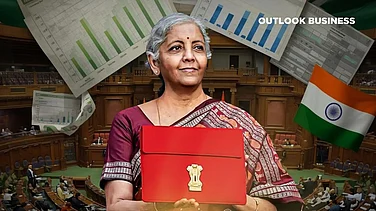The real estate sector in the last decade has witnessed remarkable transformations driven by policy reforms, technological revolutions, and evolving market dynamics. The implementation of the Real Estate (Regulation and Development) Act, 2016 (RERA) has enhanced transparency and accountability, fostering greater confidence among homebuyers and investors, while the Goods and Services Tax (GST) streamlined the tax structure, reducing the complexity of transactions.
The pandemic accelerated the adoption of digital technologies in the real estate industry. Especially driven by the work-from-home culture, there has been a paradigm shift in home-buyers preferences towards larger homes with better amenities. Affordable housing segment has also gained momentum. Overall, these transformations have contributed to a more regulated and technology-driven real estate market in India.
In the next decade, the real estate market in India is poised for substantial growth and evolution. This will be mainly driven by continued regulatory reforms, technological integration, and shifting consumer preferences. The implementation of RERA and GST will further mature, resulting in a more transparent and accountable market environment.
The adoption of prop-tech solutions will revolutionise property management and transactions. While urbanisation will intensify, leading to the development of smart cities and enhanced infrastructure, the affordable housing will remain a key focus area due to government initiatives and rising demand.
Sustainable and green buildings will gain prominence as environmental, social, and governance (ESG) awareness increases. Additionally, the hybrid work model will continue to influence the demand for residential and commercial spaces, with a preference for flexible, mixed-use developments. The Indian real estate market is set to become more resilient, innovative, and customer-centric, offering diverse opportunities for investors and stakeholders.
It is, however, worth noting that the market did not gain from the central government’s budget over the last three years, particularly in areas like enhanced incentives for affordable housing, substantial infrastructure funding, granting infrastructure status, easing of land acquisition norms, and increased financial support for green building initiatives.
Needless to mention that not granting infrastructure status to the real estate market was a significant loss, as it could have provided access to lower-cost financing and boosted overall growth. These gaps have limited the sector’s growth potential, highlighting the need for more targeted fiscal measures.
The Indian real estate industry should expect the upcoming budget to focus on:
(a) land acquisition by the central agencies and make it available to the state-controlled industrial development corporations at a subsidised rates to set up more manufacturing clusters with tax incentives;
(b) substantial infrastructure funding for improving road-rail-air-sea connectivity and supporting urban development to boost the logistics, warehousing and transportation industry;
(c) timely completion of smart city projects to enhance the need of more mixed-use developments across the country;
(d) enhanced incentives for affordable housing projects to boost supply and meet growing demand;
(e) incentivising the industries which will implement ESG; and
(f) ensuring availability of low-cost financing to promote overall growth and sustainability.
To conclude, the Indian real estate market stands at a pivotal juncture, with immense potential for growth and transformation over the next ten years. While past budgets have missed opportunities to fully capitalise on this sector’s capabilities, the upcoming budget is expected to address these gaps.
The government can certainly unlock new avenues for development and investment if the measures set out above are implemented. These measures will not only bolster the industry’s resilience and innovation but also ensure it continues to contribute significantly to the country’s economic progress. The real estate sector, with the right support, is poised to become a cornerstone of India’s growth story, driving urbanisation, sustainability, and prosperity.
(Pillai is partner, and Ulbyre is principal associate with Cyril Amarchand Mangaldas. Views expressed are authors alone)






















